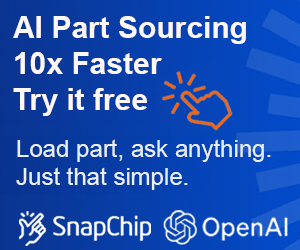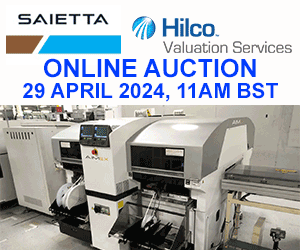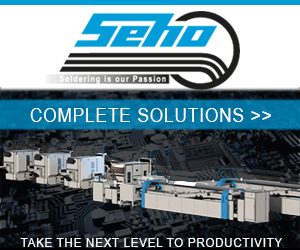Is Additive Manufacturing the Poster Child for Industry 4.0?
First published on Essentium3D’s blog
Industry 4.0, or smart manufacturing, is the most discussed trend in manufacturing right now, but what does it all mean and why is additive manufacturing uniquely ready for this fourth industrial revolution? The answer is simple, Industry 4.0 is the digital transformation of manufacturing and additive manufacturing is a native digital process.
Industry 4.0 is a transformation that offers many benefits in terms of performance, repeatability, traceability, economics, and agility. In simple terms, the concept requires every part of a manufacturing ecosystem to be connected, communicative and, to some extent, intelligent. It is based around a lot or batch size of one, where a product identifier determines the process and parts needed to complete production of that lot. In the new digital manufacturing world, data is the currency of the factory, and it is from data that value is derived.
So, let’s get down to the nuts and bolts of the fourth industrial revolution, and particularly how it relates to additive manufacturing.
The basics of Industry 4.0 are quite simple. At its core, it requires each machine on the line to be able to read, record, relay, and react (the four Rs):
- Each machine must be able to read all inputs, be they a product identifier, a part, an operator or material
- The machine will also need to record everything that happens, partly to deliver full temperature inside an oven, conveyor speeds, etc.
- Next, the machine needs to be able to relay, or share, that data with other machines and with factory-wide systems, like MES, ERP, or PLM software.
- Lastly, the machine will need to react to external data inputs, like a stop of start command or an adjustment to a parameter
The objective is to have a full data set that allows the best production setup to be achieved each time, even when that setup is unique for every price. The full data set also achieves the full traceability that is an essential by-product of an Industry 4.0 ecosystem.
Connected and Data Driven
Industry 4.0 is a connected data driven manufacturing ecosystem, meaning production has data at its core and as its currency. That data is used to tell the manufacturing ecosystem how to make the product in the most effective manner. That might be fastest, cheapest, highest quality, or to a unique personalized specification.
Additive manufacturing by its very nature is that data driven connected process.It takes a complex manufacturing down to the simplicity of a printer. Using CAD file as the data source, a file can be printed on a specified printer, using a specified material. Additive manufacturing does not need to be digitally transformed – it is a digitally native process!
The Digital Thread
Running through every Industry 4.0 production process is a digital thread. This thread is created in the specification stage and follows the product through manufacturing to the end of its life, and beyond. In a perfect world, a product’s digital thread starts when the consumer goes online and places an order, regardless of whether that order is standardized or customized. That digital thread then connects throughout production to final fulfillment and on to end of life. It is like a digital fingerprint of the product and contains all the data collected along throughout the product’s life.
The digital thread for an additive manufactured part often starts at design and will naturally exist throughout the product’s life, as it enters print and undergoes any additional processes like test or inspection.
Lot Size of One
As important flexibility of Industry 4.0 is the “lot size of one,” the idea that each piece is unique and has its own DNA or digital fingerprint. This allows for great flexibility and, of course, personalization at scale. This can be a challenge for traditional manufacturing processes, which are typically done in parallel or large lots, with multiple identical parts being made simultaneously. Indeed, much of the success of the previous industrial revolutions was a result of uniformity and repeatability, not flexibility or agility.
Additive manufacturing is, by nature, a serial process. Performance is not impacted by lot or batch size. Make one product a thousand times or make a thousand products each one time, the production time and cost is similar, if not identical.
Mass Customization
Many see mass customization as one of the largest benefits of an Industry 4.0 world. This opens new opportunities for brands to create new lines and even new business models. The idea of made-to-fit, rather than one-size-fits-all is hugely appealing to brands and to consumers who are learning to expect personalized on-demand solutions.
Additive is the ultimate mass customization tool. every part can be unique without impacting costs. What’s more, additive manufacturing can be used to deliver frictionless on-demand manufacturing, with production taking place closer to consumption than in a traditional ecosystem. Imagine ordering a product online, then going to your local UPS or FedEx office to pick it up fresh off the printer.
Connected Manufacturing Ecosystems
The goals of Industry 4.0 go way beyond a connected, intelligent machine, or even a process. Industry 4.0 nirvana comes when thousands of machines are connected on multiple sites anywhere around the world. Ultimately, a smart digital manufacturing ecosystem delivers agile manufacturing, faster prototyping, more efficient industrialization, risk mitigation and so much more. For the manufacturer and their customers, the ability to use a digital twin of that ecosystem to study “what-if” scenarios and plan for disruption is hugely valuable.
For additive manufacturing this means connecting printers in multiple locations, using them in a hybrid ecosystem where they are part of a bigger manufacturing plan, or using the digital thread, generated at the point of order to select the best manufacturing solution.
Additive Manufacturing is Industry 4.0 Ready!
Essentially, additive manufacturing is a digital, smart, and connected manufacturing process. It is not a legacy process that needs digital transformation.
It can be a child of the revolution. The poster child of Industry 4.0.













